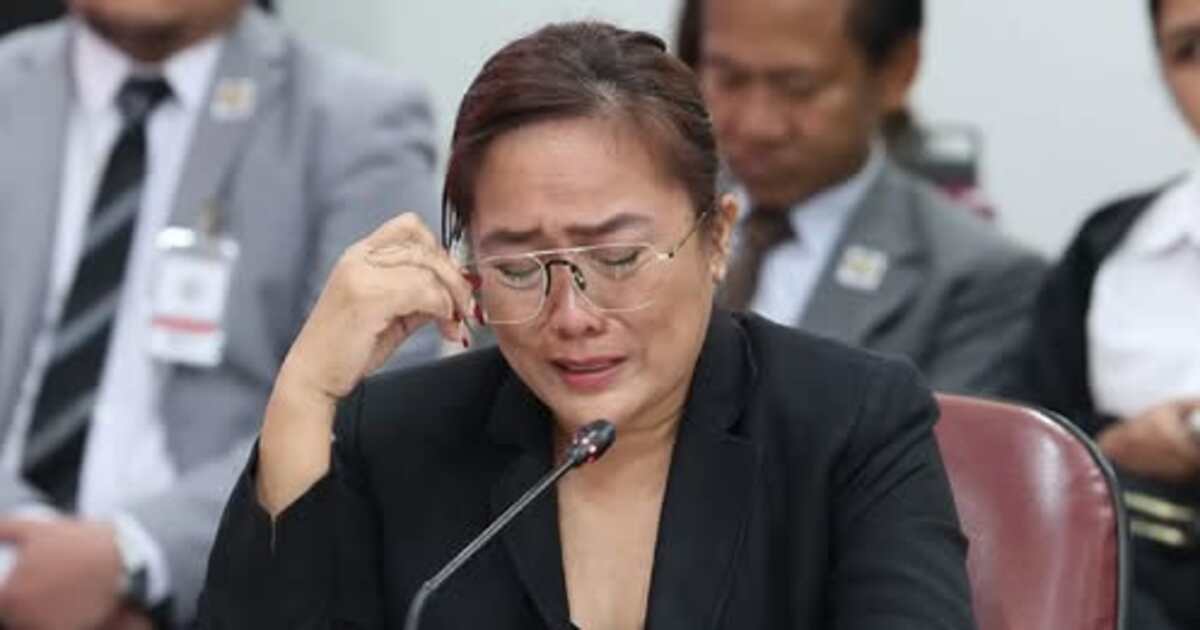WASHINGTON, D.C. — More than eight months after former Philippine police colonel and drug war whistleblower Royina Garma sought refuge in the United States, she remains detained at the South Louisiana ICE Processing Center, her lawyer Emerito Quilang confirmed on July 8.
Garma, who fled the Philippines on November 7, 2024, was apprehended upon arrival in San Francisco and served an expedited removal order, reportedly due to immigration violations. According to a Department of Foreign Affairs (DFA) official, the Philippine Consulate in Houston verified her continued detention.
Garma’s controversial background includes being a key whistleblower during investigations into the Duterte administration’s war on drugs. However, she is now facing murder and frustrated murder complaints in the Philippines related to the 2029 killing of retired police official Wesley Barayuga, who also held a post at the Philippine Charity Sweepstakes Office (PCSO).
Quilang, who is handling Garma’s legal affairs in the Philippines, told reporters that while he’s aware of her situation, he remains uncertain about the exact basis for her continued detention in the U.S. immigration system. In particular, he said he’s “still in the dark” regarding the full scope of her U.S. legal status.
Conflicting Narratives
In February 2025, Interior Secretary Jonvic Remulla claimed Garma was detained due to a money laundering case. Quilang denied this in April, stating instead that the real reason was her canceled visa—possibly linked to the Magnitsky Act, a U.S. law that bars entry to individuals implicated in human rights abuses or corruption.
Asked for comment, a U.S. Embassy spokesperson in Manila declined to provide information, citing policies on individual visa matters.
Legal Pathways and Uncertainties
Under U.S. immigration law, particularly the Immigration and Nationality Act, an expedited removal order may be issued if an individual is found inadmissible due to visa fraud or entry without valid documentation. This seems to align with the circumstances of Garma’s case.
Garma may still be eligible to seek asylum under the defensive asylum process, which applies to individuals in removal proceedings. If she claims fear of persecution or torture, she may undergo a credible fear interview conducted by a U.S. Citizenship and Immigration Services (USCIS) officer. A favorable outcome could lead to an asylum merits interview, and if denied, she may seek other protections such as withholding of removal or relief under the Convention Against Torture (CAT).
However, it remains unclear whether such proceedings have commenced. If her case progresses to an immigration judge, she would receive a Notice to Appear and undergo a formal hearing before the Executive Office for Immigration Review (EOIR).
Limited Access and No Clear Updates
Attempts to obtain additional details from the South Louisiana ICE Processing Center and the Philippine Consulate General in Houston have so far been unsuccessful. With no new public records or official statements, Garma’s current legal status in the U.S. remains murky.
Her continued detention raises important questions about how the U.S. handles asylum seekers involved in politically sensitive cases—particularly those with pending legal charges and possible links to human rights investigations.
As the U.S. immigration system tightens under evolving policies, even individuals with potentially credible claims face complex, uncertain futures. For Garma, the journey from police colonel to whistleblower to detainee continues—caught in a legal crossfire on foreign soil.



